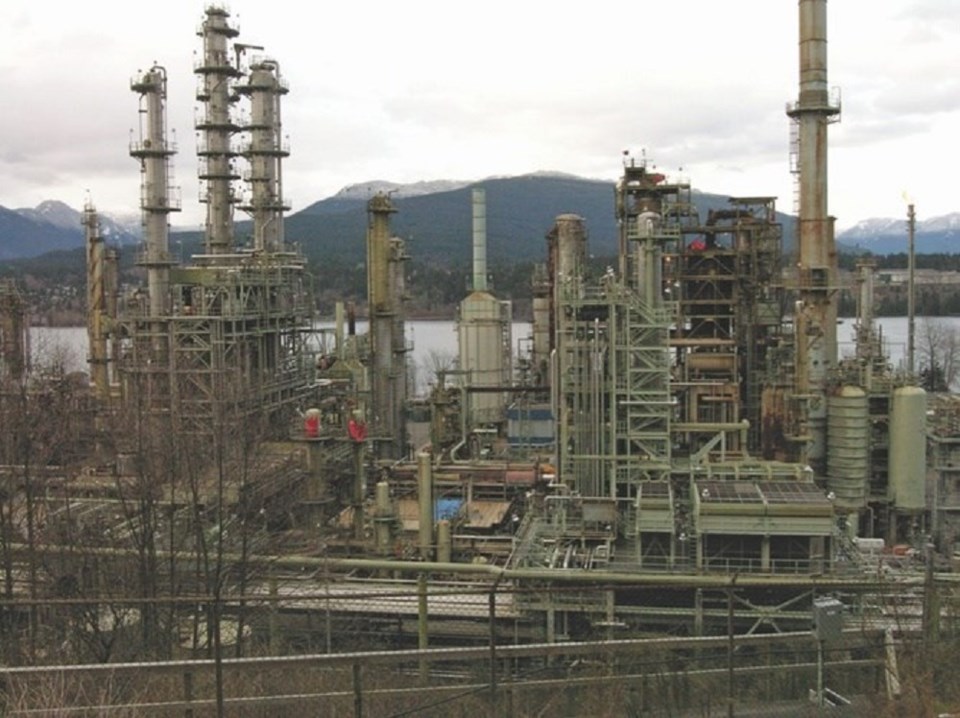Parkland's Burnaby refinery has become the first in Canada to produce a batch of low carbon aviation fuel.
The company said the feat was reached with support from the province, marking a major step toward being able to deliver a Canadian-made alternative that can help lower emissions in the aviation sector and support B.C. and Canada's climate goals.
“Parkland is thrilled to demonstrate its leadership and proven expertise at the Burnaby Refinery by becoming the first Company to produce low carbon aviation fuel in Canada,” company senior vice-president Ferio Pugliese said in a news release.
“Thanks to the vision and skill of our team, the leadership of the Government of British Columbia and Air Canada, Canadians can see the possibility of flying with Canadian-made low carbon fuel. This pilot project demonstrates how constructive incentives can spur Canadian production of low carbon aviation fuel.”
The refinery in Burnaby — located at 355 Willingdon Ave. N. — produced roughly 101,000 litres of low carbon fuel by using non-food grade canola and tallow as core feedstocks, the company said.
The batch was bought by Air Canada.
“This represents our first commercial purchase of Canadian produced low carbon aviation fuel,” Air Canada president and CEO Michael Rousseau added.
“Currently, the Canadian airline industry is dependent on international imports of low carbon fuels, making Parkland’s accomplishment a critical first step in creating domestic supply.
"Air Canada is actively pursuing efforts to mitigate its greenhouse gas emissions and LCAF and SAF are a critical component of our multifaceted approach to reducing our impact on the environment and promoting environmental sustainability in our operations. We encourage all levels of government to support the development of a competitive low carbon aviation fuel or SAF industry and production market in Canada with balanced, supporting policies.”
New Minister of Energy and Climate Solutions Adrian Dix congratulated Parkland for its groundbreaking initiative, saying it helps address climate change.
"I want to congratulate Parkland on this groundbreaking initiative that aligns with our government's climate goals and the urgency in which we must address climate change.
"British Columbia leads the way in incentivizing innovation to reduce emissions across many sectors, and Parkland continues to be an outstanding partner and role model for biofuel producers."



